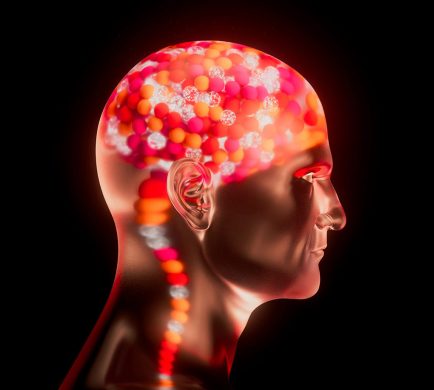By Lyn Barrett
An Excerpt from Crazy: Reclaiming Life from the Shadow of Traumatic Memory
I never wanted to be crazy. Almost from the beginning of my decompensation, when I had the energy to think about it, I wanted to be sane and normal, with a shot at happiness, just like other people. For me, that meant that I would resume life without a myriad of voices, without an endless stream of pain, without feeling like a victim, without the sense of unreality that so often enveloped me. Instead, my sense of self would be unified and integrated, my bonds with my real children would be renewed, I would have a loving relationship with another human being, and I would no longer be a victim. I would be a survivor, a thriver. I would own my own power and leave my pervasive sense of powerlessness behind.
Not surprisingly, relationships became a major theme in my therapy with Sonia. In my nuclear and family of origin, as well as with friends beyond my family, I had difficulties with intimate relationships because they required trust. Even though I thought I trusted people, I didn’t. My presenting part might put on a good show, but the rest of my system—the common term for the interaction of alters in one person—had a different story to tell.
“How often did you blame others for your problems?” shot John in a seven-page typed letter excoriating me during the height of our breakup. He listed everyone whom he thought I had blamed for a whole truckload of sins. He twisted stories and included many mischaracterizations, but there was some truth in his observation. With the exception of Thelma, I didn’t know how to have friends, I didn’t know how to navigate complicated interpersonal waters, and I had a hidden lack of trust in other people. I was good at faking it, and other people saw me as a social, happy, friendly, capable person. This deep-seated trust issue was well hidden, even from me.
Once I began therapy with Sonia, my internal radar kept drawing me into therapeutic and real-life situations that challenged this pathology. Faith in a God who loved me just the way I was didn’t require a lot of intimacy, at least not at first. Connecting in Quaker meetings so I could watch how people interacted from a distance gave me a good idea of what “normal” looked like. Going to group therapy, in spite of huge triggers, got to the meat of the matter. Allowing each voice to come out and speak their truth to Sonia gave me more and more confidence in my real relationships. It wasn’t easy; in fact, it was excruciating, but my system kept thrusting me into situations that forced me to confront my dysfunctional perceptions.
The world is built on relationships. If I was to have any semblance of a normal, sane life, I had to move beyond my doubt, fear, and shame and learn how to be vulnerable and intimate. I fully expected memories would emerge to explain away the craziness I was experiencing, but, in the meantime, I focused on learning how to trust appropriately and navigate relationships.
I began to attend a new Quaker meeting when I moved to Bethlehem. One Sunday afternoon, I wrote in my journal, Meeting was nice this morning. It is a grounding place for me—a bit distant, which is okay. But a place to see people who connect with me. To see that I am like other people, I am different, but not so different. Bright, strong people at meeting are vulnerable like me. A centering place. A grounding place. I think I am accepted and valued there too.
Because my mind usually functioned well even when my feelings were all jumbled up, I found myself studying and reading about Quakers or the Religious Society of Friends as they are formally known. Staying in my head touched my heart without requiring me to develop intimate relationships, which always ran the risk of hurting me. I could grow spiritually without jeopardizing my emotional safety. Gradually, I put my little toe into meeting by joining a ministry committee. We met at the home of Martha, a woman I knew through graduate school. One evening, I was agitated by something unrelated to the committee and broke down in tears. I was horrified. I was being vulnerable in front of people I hardly knew. I always tried to project strength, but here I was, letting down my guard and showing weakness.
“I’m so sorry. I shouldn’t be crying. Please forgive me. I’m usually strong. Sorry,” I gasped, trying to regain control. Martha stood, walked around the table to where I was sitting, and put her arms around me.
“Lyn, we don’t love you because you’re strong. We love you because you’re you.”
Wow. I wasn’t expecting that. Here was real compassion and no expectation that I had to be strong. I wasn’t ready to reveal all to these people—and that was sensible—but I learned that I could show weakness and still be safe and valued as a person.
A year after my hospitalization, I was forty-five years old and struggling with a diagnosis. This little three-year-old waif named Rosie was in the center of my chaos, and the part of me who called herself Nanny claimed to be the one taking care of her. On top of that, other parts were popping out all over the place, claiming names and demanding a voice in my conscious mind. However, I was a smart, accomplished woman, and I didn’t buy any of it. I was sure it was all an invention of my imagination, which, I would learn later, is a clear sign of dissociative identity
disorder, sometimes dubbed the “hidden disorder” since its very purpose is to hide the abuse from everyone including the one who owns it. Yet as preposterous as it sounded, having insiders or alters resonated with a deep, visceral part of me, the part of me that felt, that spewed raw, uncensored words on a page, that curled into a fetal ball on a regular basis, that lived in fear almost every second of every day.
Still, the functioning, the cognitive part, didn’t believe me for a minute. I wrote in my journal; I know you can tell I am having a hard time with this.
It isn’t easy. You know I don’t want to pretend. I know some of this is real, but some of it seems like make-believe. I don’t want to make something up. I want to get well, to get healthy. Are you there? Will you help me?
Or:
I am not multiple personalities, but I am screwed up and very confused. If I forget about names and just talk about feelings, then it will be okay.
On good days, I cut myself a break.
I’m here; I told whoever was there if anyone. When you’re ready, I’m here. I care about you. I want us to be partners, allies. I know it’s rough now for all of us. It’s confusing and scary, but I want you to know I’m here. And even though other people are important to me, you are most important. I want you to come first. No one, and nothing, is more important than you. Even though my real children were the most important to me, I knew I needed to put myself first, which meant prioritizing the alters I didn’t believe existed. I may feel sick, I may be complaining, but that’s because I’m confused. It’s okay. It’s okay for me to feel sick if that’s what I have to do to get to know you. That’s how important you are to me. I accept it. I accept you.
Rosie and Nanny didn’t go away. Others began to make themselves known. “Tell me, Sonia, what do you think?” I asked her, frantic, terrified to know the answer. “Do you believe that multiple personalities exist? Do you think I have multiple personalities? I think it’s crazy, but I need to know what you think.” Throughout my years of therapy, Sonia submitted my diagnosis as a post-traumatic stress disorder, an accepted diagnosis that an insurance company would cover. On the other hand, multiple personality disorder was controversial and sure to raise the scrutiny of the claim’s office. Nonetheless, she forged ahead.
“Yes, Lyn,” she replied, “I believe there’s such a thing as multiplicity, and I believe you are multiple. What’s really important, though, is what you think.” I needed to hear her say that, but I still didn’t believe it. I decided to get a second opinion from a psychiatrist affiliated with Northwestern Institute. I prayed fervently, Who am I? Lord, please let me be one person. How can I live a sane life with myself and others if I am not one person, whole and together? Who am I?
The days leading up to that appointment were tumultuous. Multiple voices vied for airtime, frightened, ashamed, confused. This new doctor was a threat. He wouldn’t believe me. He’d tell me I was bad or crazy. I was going to get into trouble.
I’m a bad girl.
He’s going to tell me I’m a bad girl.
But don’t hurt me.
Nothing.
I’m bad for thinking these things. I’m bad for writing them. He will tell me that. He will tell me that it isn’t true. He will tell me to go home and buckle up and get better. But he won’t say it like that. He will make it sound nice and supportive and professional and true. And I will go home and believe him and disappear.
I think I’ve tricked everyone.
I’ve tricked Sonia.
I’ve tricked the therapy group.
I’ve tricked my friends.
I’ve tricked myself.
Tomorrow night he will discover that I’ve tricked
everyone.
And he will tell me that I’m bad because I have tricked them.
After school on a crisp fall Monday afternoon, I drove an hour into Philadelphia to meet with this new psychiatrist. On the way, an unfamiliar part of me took the wheel. She was alive and happy and began to have strong sexual feelings.
I can feel the energy in every part of my body. It’s electric. I’m electric. The space between my legs was quivering and sending signals everywhere, making it difficult to concentrate on driving. Oh, wow. I love this! Watch out. You have to drive. Be careful. Oooh, I can’t wait to meet this new doctor. Maybe he’s handsome. Maybe we can have some fun. Check the directions. Turn the corner. He can’t hurt us. Let’s do it! This part knew how to take care of the new doctor—she wanted to seduce him. Later, she would tell me her name was Sylvia.
When we got to the doctor’s office, Sylvia dutifully retreated into the background and let Lyn go into the session. I remember little of what happened except that after I’d told the doctor what was going on, he said he saw little reason to doubt what my own body, mind, and spirit were telling me. He confirmed the diagnosis.







